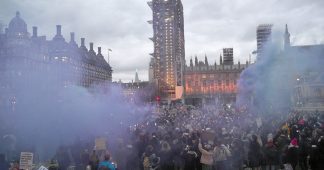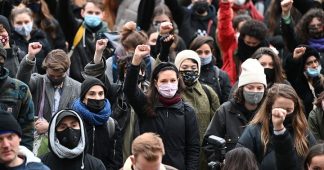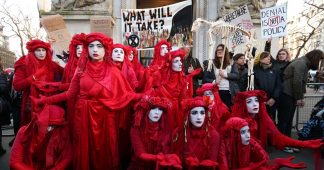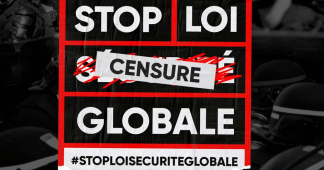The decision of the government to delay the passage of its Crime and Policing Bill is simply its tactical response to the outcry over the killing of Sarah Everard and the inevitably negative fallout from the extraordinarily maladroit management of the Clapham Common vigil.
The government, which has a majority of 80, will have little trouble in getting the main provisions of the Bill through but, nevertheless, is highly sensitive to the optics on this issue and manoeuvres accordingly.
This Bill and almost all latter-day “law‘n’order” legislation is entirely unnecessary. The statute book is overladen with laws that give the executive ample powers to deal with almost any contingency.
And if not, there is always the wide latitude given to the police in responding to whichever challenge to authority is presented by a population that has a multitude of grievances.
This myth of “operational independence” is what allowed Home Secretary Priti Patel to strong-arm police commissioner Cressida Dick into one course of action and then drop her in it when the Clapham Common events went pear-shaped.
For those of a submissive disposition and unwilling to contemplate the awful prospect that the police are the discretionary instrument of the state’s monopoly of physical force, it is only necessary to reflect on the different treatment accorded to the celebrants of Glasgow Rangers’ football triumphs and the Clapham Common women.
The focus on the public safety of women — and by extension the problematic nature of any protection that the police collectively or individually might provide — gave Labour a brief window of opportunity in which to develop a public dialogue about the kinds of policing a modern society might adopt.
With the Bristol events, that moment has passed and with it the opportunity for Keir Starmer — former director of public prosecutions and human rights lawyer — to develop an expert narrative that would distinguish Labour from the Tories and challenge the rigid certainties that underpin conventional thinking about policing.
The myth has it that the police stand as a thin blue line against a threatening tsunami of crime and disorder. Starmer knows that last year the number of recorded crimes resolved via a charge or summons fell by 33,460 (from 384,323 to 350,863). This represented 7 per cent of crimes recorded.
And the uncomfortable fact is that it is police tactics that determine the outcome of almost every public order situation and scenario.
It was Brendan Behan who remarked: “I have never seen a situation so dismal that a policeman couldn’t make it worse.”
How is it that, when a million people took to the streets to protest against the Bush-Blair war on Iraq, the event passed without conflict; yet when a few hundred express their anger and sadness at the murder of a young women, appalling scenes of conflict flood social media?
Of course there are elements whose irrational behaviour presents something of a passing challenge. Black Block provocateurs give all anarchists a bad name, but the police usually have a better idea of what these people are likely to do in a demonstration than do the balaclava brigade themselves.
The anti-vaxx and anti-lockdown movement is so shot through with fascist fanatics, crackpot conspiracists and anti-science agitators that, whenever they gather, there is the prospect of an unpredictable outcome. But these people represent little in the way of a systemic challenge.
What really frightens our rulers is the righteous anger of millions of working people who see every aspect of 21st-century class society harming their livelihoods and the lives of their children.
And this is why it seeks the doubtful and double-edged security of even more draconian laws.
Published at www.morningstaronline.co.uk











